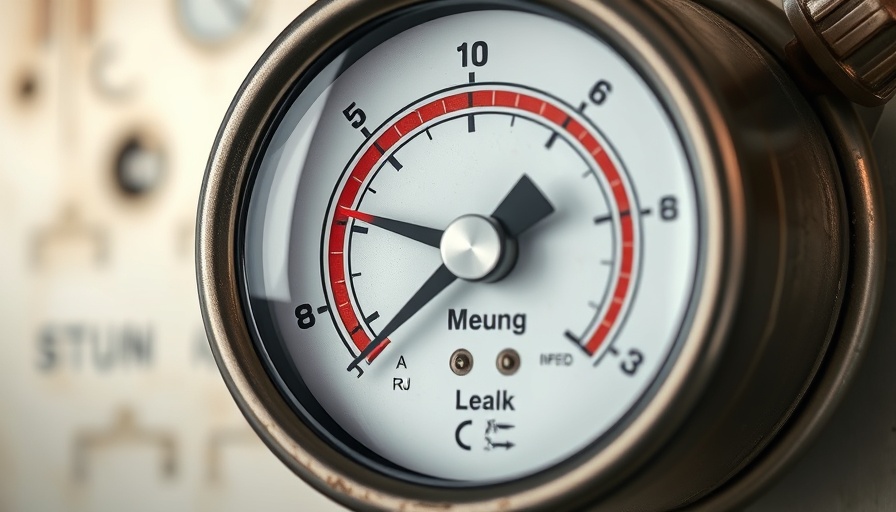
Essential Steps for Detecting Gas Leaks in Your Home
Gas leaks can pose serious dangers to anyone, whether you're a homeowner or a renter. Understanding how to detect a potential gas leak can save lives and prevent costly damages. With natural gas increasingly being utilized in households, the risk of leakage grows, making it essential for everyone to know what to look for.
Why Gas Leak Awareness Matters
Natural gas is commonly used for appliances like stoves and heaters, and while it is generally safe, leaks can occur. This simple yet precious utility can become a threat when not properly utilized or maintained. A staggering number of calls—about 125,000 annually in the U.S.—are made to fire departments regarding gas leaks. Leaks can lead to fires or even explosions. Thus, awareness of this issue is crucial for the safety of families and individuals alike.
Signs That You Might Have a Leak
Detecting a gas leak may require vigilance. Here are some signs to keep an eye on:
- Odor: If you smell something akin to rotten eggs, it’s likely mercaptan, an added substance in natural gas to alert you of a leak.
- Sound: Listen for any hissing noises that could suggest escaping gas.
- Physical Symptoms: Nausea, headaches, or dizziness in your household could indicate a dangerous accumulation of gas.
Installation of Gas Detectors
One of the best preventive measures is to install a gas leak detector. These handy devices can alert you if levels of combustible gases reach dangerous concentrations. Consider positioning detectors near bedrooms for maximum safety. A portable gas leak detector allows you to check multiple areas in your home, doubling down on safety. It’s important to complement gas detectors with carbon monoxide detectors, as they serve different detection purposes.
Conclusion: Stay Safe and Informed
Awareness and preparedness are key when it comes to preventing gas leaks. By following these straightforward steps, you can help protect yourself and your loved ones from potentially dangerous situations. Regular checks, installation of devices, and education about gas leaks will keep your home safe.
Stay ahead of any potential issues by regularly educating yourself and implementing safety measures. For more tips and advice on home improvement and safety, keep following our articles!
 Add Row
Add Row  Add
Add 




 Add Row
Add Row  Add
Add 


Write A Comment